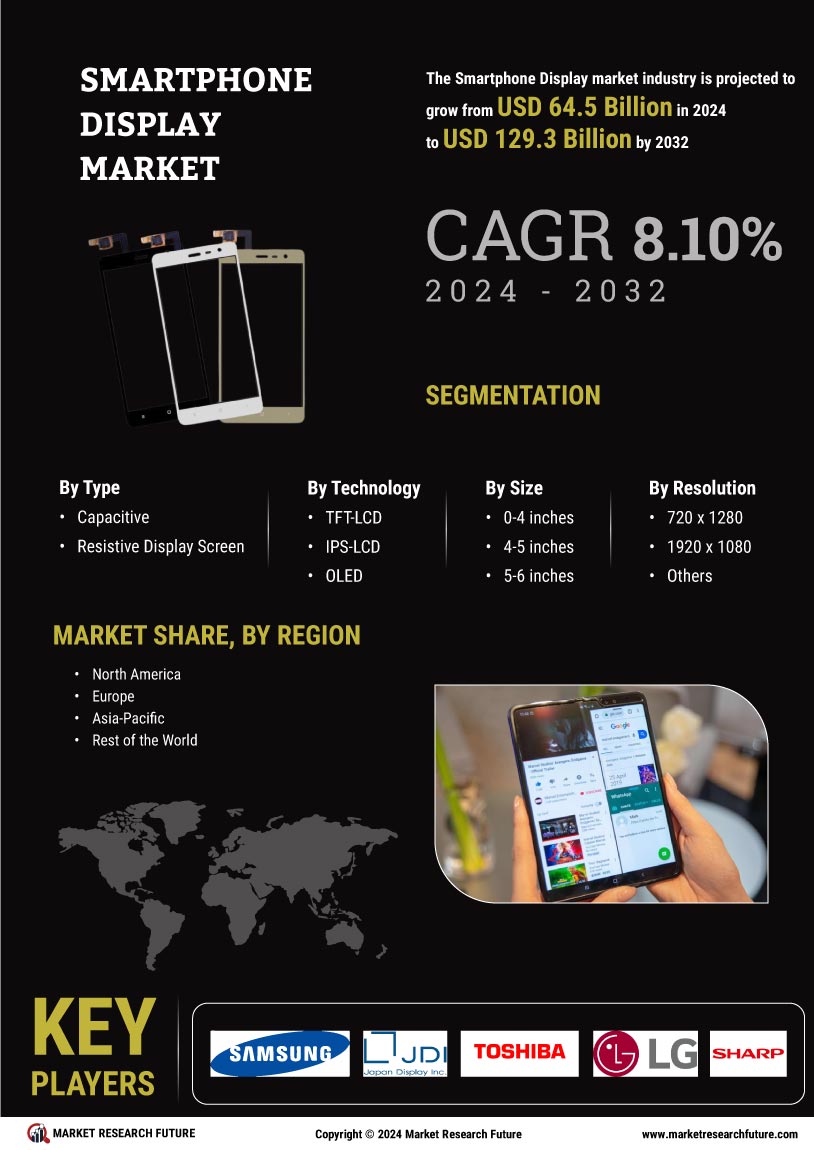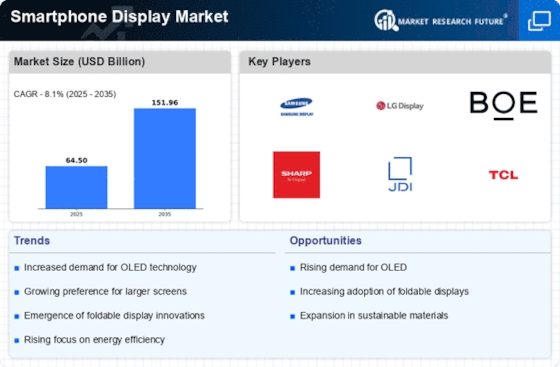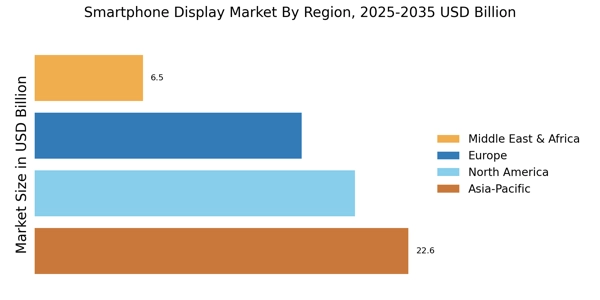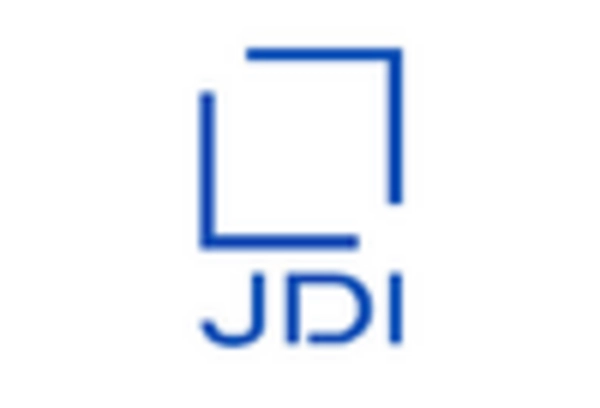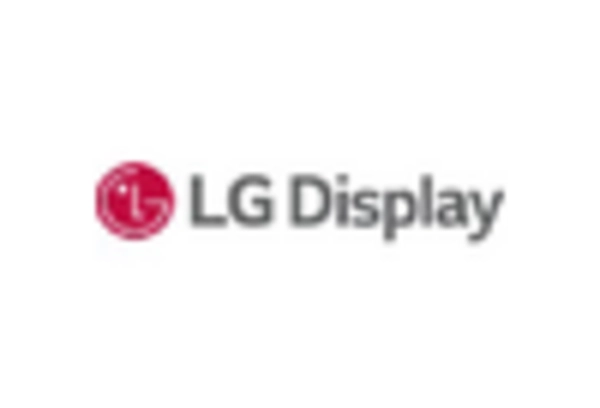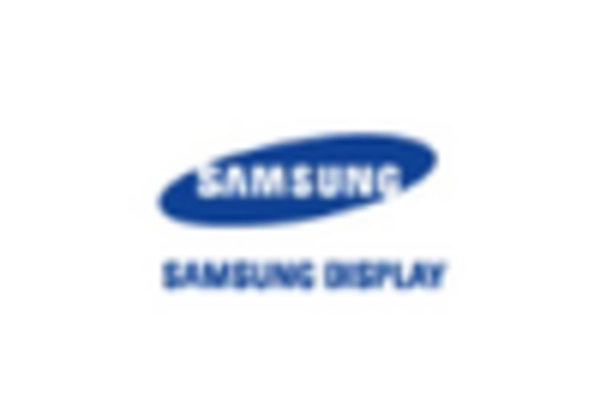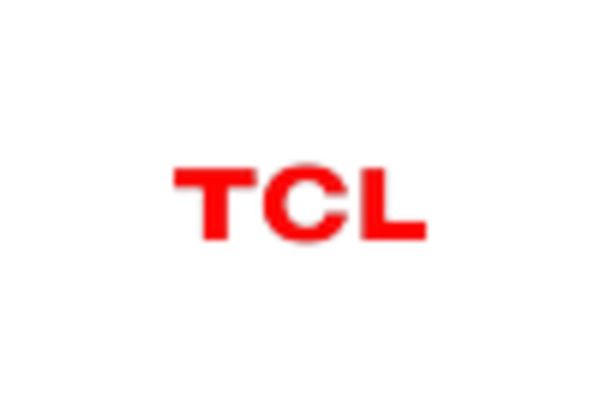Leading market players are investing heavily in research and development in order to expand their product lines, which will help the Smartphone Display Market, grow even more. Market participants are also undertaking a variety of strategic activities to expand their global footprint, with important market developments including new product launches, contractual agreements, mergers and acquisitions, higher investments, and collaboration with other organizations. To expand and survive in a more competitive and rising market climate, Smartphone Display industry must offer cost-effective items.Manufacturing locally to minimize operational costs is one of the key business tactics used by manufacturers in the global Smartphone Display industry to benefit clients and increase the market sector. In recent years, the Smartphone Display industry has offered some of the most significant advantages to medicine. Major players in the Smartphone Display Market, including SAMSUNG, Japan Display Inc., Toshiba Corporation, LG Electronics Inc., Sharp Corporation, Fujitsu Ltd., Sony Corporation, Apple Inc., Motorola Inc., and Mitsubishi Electric Corporation, are attempting to increase market demand by investing in research and development Types.Huawei Technologies Co Ltd (Huawei), a branch of Huawei Investment & Holding Co Ltd, provides the infrastructure for ICT and smart devices. The company's product portfolio also includes tablets, wearable electronics, headphones, enterprise wireless goods, enterprise optical transmission and access devices, networking gear, cloud computing solutions, and more. Additionally, it offers carrier network software and services as well as smart services for enterprises. Transportation, banking, healthcare, manufacturing, oil and gas, public safety, retail, and smart cities and grids are just a few of the industries that Huawei serves.In addition to the Asia-Pacific region, the corporation also operates in the Americas, Africa, and Europe. Huawei's corporate headquarters are in Shenzhen, Guangdong, China. Huawei Device Co., Ltd. announced in November 2021 that the business is going to release mobile devices across Canada in order to provide customers with improved services. The automotive and telecom industries in Europe are making significant investments in the creation of loT-enabled products.Samsung Electronics Co. Ltd. (Samsung), a division of the Samsung Group, manufactures consumer electronics, information technology, mobile communications, and device solutions. The company's product line includes digital cameras, printers, monitors, computers, network systems, refrigerators, washing machines, air conditioners, medical equipment and TVs. It also manufactures LCD and LED panels, mobile phones, tablets, smartphones, and other accessories. The government, healthcare, financial, educational, retail, hotel, and transportation industries can all profit from Samsung's solutions. The company also has operations in the Americas, Europe, Africa, and the Middle East in addition to Asia-Pacific. Samsung's headquarters are in Seoul, South Korea.
In July Samsung worked with the German Federal Office for Information Security (BSI), Deutsche Telekom Security GmbH, and Bundesdruckerei (bdr) to develop a hardware-based security architecture. The locals can use it to securely preserve their National ID as an elD on their phone. This cooperation helps the nation's eGovernment initiative.
